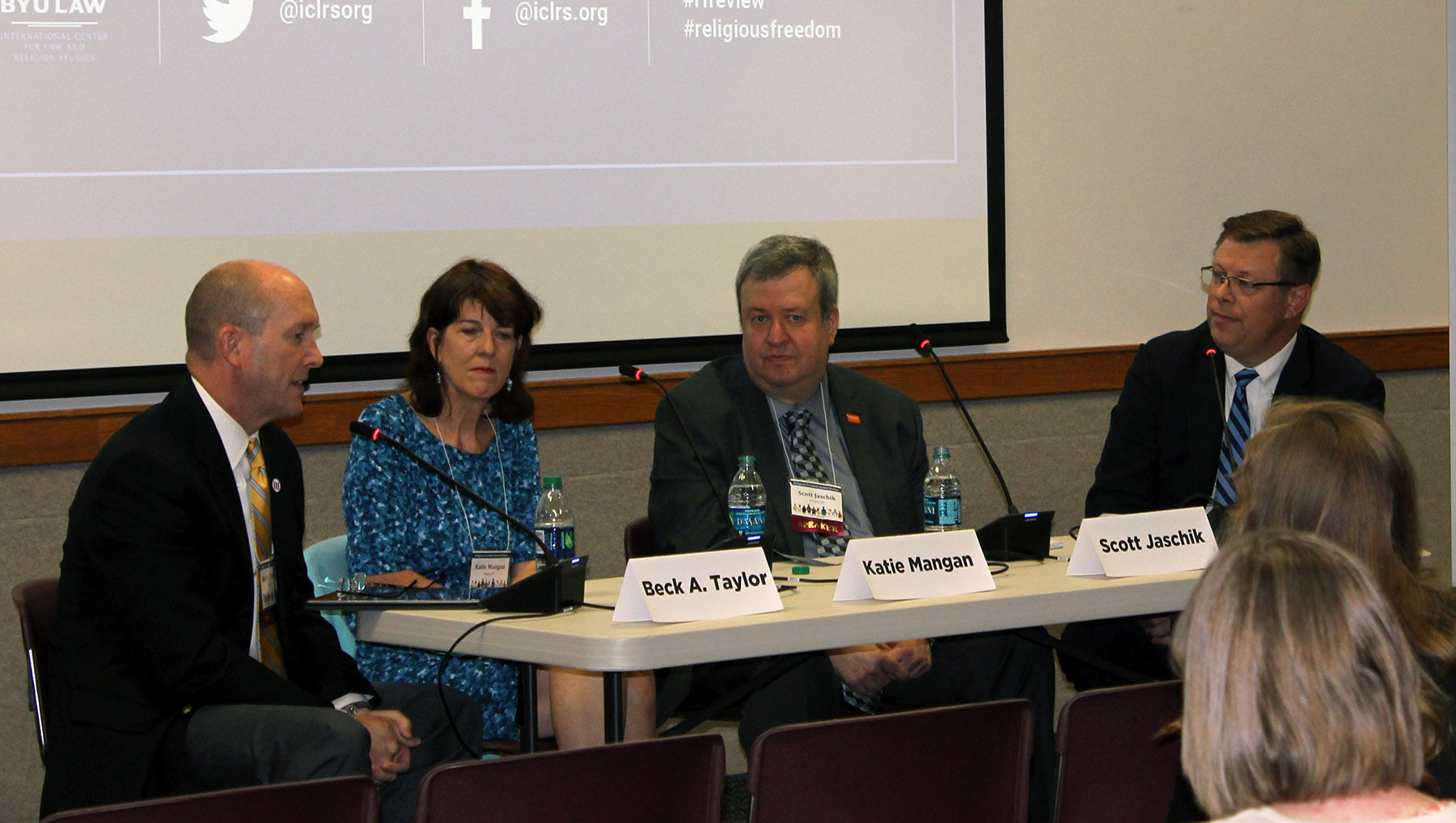Workshop: Religious Freedom and Media Coverage in Higher Education – Beck A. Taylor, Katie Mangan, and Scott Jaschik

By Austin Atkinson, 2018 ICLRS Student Fellow
This breakout session was moderated by Clark Gilbert, President, BYU-Pathway Worldwide. The panel of speakers included Beck A. Taylor, President, Whitworth University and President, American Association of Presidents of Independent Colleges and Universities, Katie Mangan, Senior Writer, The Chronicle of Higher Education, and Scott Jaschik, Editor and Cofounder, Inside Higher Ed.
The panel first discussed what issues and stories from 2018 would be the leadoff stories, moving on to the biggest concerns for religious schools, and discussing methods for opening dialogues between religious higher educational institutions and the media. Clark Gilbert set the stage by acknowledging that there is no force that more unifies and causes contention in America than religion does. There are people with good intent on both sides of the issue, with some fearing that many are deprived of their religious freedom, and others worried that it enables people to discriminate.
Beck Taylor began his remarks with a concern that any victories that the faith-based higher education sector may achieve could be credited to the Trump administration, which could cause problems down the road in the way Trump has conflated issues making them more difficult to navigate. Taylor also expressed another broad set of concerns surrounding funding mechanisms. Typically, the faith-based higher education sector likes to think of themselves as serving the public interests, but because of funding sources, they may be held accountable to particular administrations at state and federal levels. He underlined the value that religious institutions bring to society, saying “the most important identity characteristic is not the types of students we admit or the programs that we run, but it is the ability to hire faculty and staff that support the nature of our institutions.”
Katie Mangan highlighted the story about the meaning of diversity in the context of a religious institution. These institutions value diversity, but there are difficulties that arise in grappling with other issues such as LGBT rights. She encouraged those in attendance to look forward to how other colleges will act to face issues like these while still holding true to their beliefs and ideologies. Regarding the relationship between religious higher educational institutions and journalists, Mangan added that as a journalist, when she is covering a story, she must work and speak with the key players involved rather than talking strictly with media representatives. She urged the institutions to trust their faculty rather than worry they might say something wrong.
Scott Jaschik pointed out the arguments as to whether this may be the best of times or the worst of times for religious colleges. On the one hand, policy makers have never been more sympathetic and more conservative judges have been appointed by Trump. From the other perspective, there is a growing doubt in the sincerity of some evangelical groups, with some worrying that rather than having a series of principled beliefs, they are merely seeking to roll back abortion or gay rights. Jaschik brought up the importance of being honest about secular journalists saying that they may have religious faith themselves, but come at issues from an secular viewpoint regardless of their beliefs. He urged religious institutions to be open to difficult conversations with journalists, asking that the institutions not be afraid to ensure journalists know what is important to cover their particular faith.